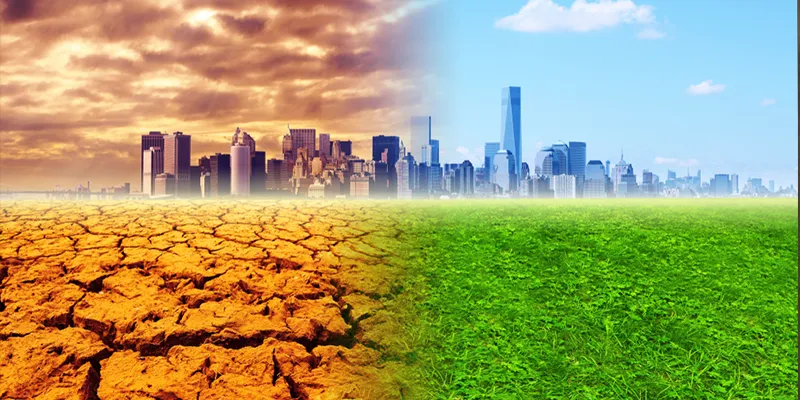Climate tipping points are now imminent, scientists warn
Around 13,000 researchers have called for urgent action to slow down the climate emergency as extreme weather patterns shock the world. They listed three core measures.
Thousands of scientists reiterated calls for immediate action over the climate crisis in an article published Wednesday in the journal BioScience.
"The extreme climate events and patterns that we've witnessed over the last several years — not to mention the last several weeks — highlight the heightened urgency with which we must address the climate crisis," said Philip Duffy, co-author of the study and executive director of the Woodwell Climate Research Center in the US state of Massachusetts.
Two years ago, more than 10,000 scientists from around 150 countries jointly declared a global climate emergency. They are now joined by over 2,800 more signatories in urging the protection of life on Earth.
Since the 2019 declaration, Earth has seen an "unprecedented surge" in climate-related disasters, researchers noted.

What are the signs?
For the study, researchers relied on "vital signs" to measure planetary health, including greenhouse gas emissions, glacier thickness, sea-ice extent, and deforestation. Out of 31 signs, scientists found that 18 hit record highs or lows.
The year 2020 was the second-hottest year since records began, scientists said. And earlier this year, the carbon dioxide concentration in the Earth's atmosphere was higher than at any time since measurements began.
The authors noted that all-time low levels of ice mass have been recorded in Greenland and Antarctica. Glaciers are melting 31 percent faster than they did just 15 years ago, they added.
Meanwhile, the annual loss rate of the Brazilian Amazon reached a 12-year high in 2020.
Tim Lenton, director of the University of Exeter's Global Systems Institute and co-author of the study, said the recent record-breaking heat wave in the western United States and Canada showed that the climate had already begun to "behave in shocking, unexpected ways."
"We need to respond to the evidence that we are hitting climate tipping points with equally urgent action to decarbonise the global economy and start restoring instead of destroying nature," he said.
How can we respond to the climate crisis?
Researchers reiterated calls for transformative change, listing three main emergency responses in the immediate term:
- Phasing out and eliminating fossil fuels
- Implementing "a significant carbon price"
- Restoring ecosystems such as carbon sinks and biodiversity hotspots
Climate change should be included in core curricula in schools worldwide to raise awareness, the authors said.

Representational image
Scientists also urged slashing pollutants, stabilizing the human population and switching to plant-based diets.
"We need to stop treating the climate emergency as a standalone issue — global heating is not the sole symptom of our stressed Earth system," said William Ripple, a lead author of the study and professor of ecology at Oregon State University's College of Forestry.
"Policies to combat the climate crisis or any other symptoms should address their root cause: human overexploitation of the planet."
(This article was originally published on Deutsche Welle.)
Edited by Suman Singh
(Disclaimer: The views and opinions expressed in this article are those of the author and do not necessarily reflect the views of YourStory.)







